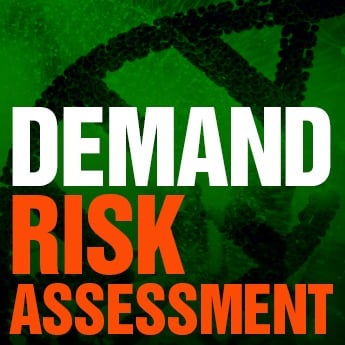Désolé, la version française de cette page ne peut être offerte pour le moment.
<!-- Go to www.addthis.com/dashboard to customize your tools --> <span class="addthis-header">Share this:</span><div class="addthis_inline_share_toolbox"></div>
Genetically Modified Wheat: Background
Updated June 4 2013
Click here to download the pdf file.
Contact: Lucy Sharratt, Coordinator, Canadian Biotechnology Action Network, 613 241 2267 ext 25 coordinator@cban.ca www.cban.ca/wheat
GM Wheat Contamination Update
- On May 29 2013, the United States Department of Agriculture (USDA) confirmed that Monsanto’s unapproved genetically modified (GM, also called genetically engineered) herbicide tolerant wheat was found growing in a farmer’s field in the state of Oregon.
- The USDA has not identified the source of contamination and does not know how widespread the contamination is.
- No GM wheat contamination has been discovered in Canada.
Regulatory Status of GM Wheat:
- No GM wheat is approved anywhere in the world.
- Monsanto asked the Canadian and US governments to approve its GM herbicide tolerant (Roundup Ready) wheat but withdrew its requests in 2004 after intensive farmer and consumer protest across North America and in our export markets.
- No Canadian government agency has come to a conclusion of safety on this or any other GM wheat.
- The US Food and Drug Administration completed a “voluntary consultation” on safety of food and feed from Roundup Ready wheat in 2004 and concluded that the wheat was safe for human consumption.
Field Trials in North America:
- According to the USDA press release of May 29 2013, 2005 was the last year that this GM wheat was tested in field plots in the US (It was tested in plots in 16 states from 1998-2005). However reports have since discovered that Monsanto resumed trials of unidentified herbicide-tolerant wheat, with 15 trials at sites in North Dakota and Hawaii (http://www.bloomberg.com/news/2013-05-31/monsanto-resumed-field-trials-of-roundup-ready-wheat.html ).
- Canadian government records show that 2004 was the last year Monsanto field-tested GM wheat in Canada.
- In 2001, the Canadian Food Inspection Agency increased the buffer zones required to isolate wheat field trials from 3-10 metres to 30 metres; and in 2004 the buffer zone was increased to 300 metres.
Farmer Opposition in Canada:
- 69% of farmers are opposed to the introduction of GM wheat « at this time » according to a 2009 survey conducted by the Canadian Wheat Board.
- 83% of Canadian farmers disagreed that Roundup Ready wheat should be introduced according to a study started in 2004 and published in a peer-reviewed article March 2009. Overall, the farmers ranked the risks of market loss, corporate control of the food supply, agronomic impact and contamination of non-GM crops much higher than any anticipated production benefits. – “Farmer knowledge and a priori risk analysis: pre-release evaluation of genetically modified Roundup Ready wheat across the Canadian prairies”, Ian J. Mauro & Stéphane M. McLachlan & Rene C. Van Acker, 20 March 2009, Environmental Science and Pollution Research.
GM Contamination:
This latest case of genetic contamination is, unfortunately, not a rare event. In fact, Greenpeace and GeneWatch UK maintain is a registry of global contamination events: www.gmcontaminationregister.org
- Approved but Illegal GM Flax – Contamination, unknown source (Canada): In late 2009, the European Commission’s Rapid Alert System for Food and Feed confirmed the contamination of Canadian flax exports – ultimately in 35 countries – with a genetically modified (GM) flax that has been illegal to sell in Canada since 2001 Canadian flax growers forced the government to make sure the GM flax never reached the market. Contamination was confirmed in cereals, bakery products, baking mixes and nut/seed products. The GM flax was developed at the University of Saskatchewan and approved by the Canadian government in 1996/1998 but the Flax Council of Canada and the Saskatchewan Flax Development Commission convinced the Canadian Food Inspection Agency to remove variety registration for the GM flax in 2001, making it illegal to sell the seeds. Flax growers made sure the GM flax did not reach the market in order to protect their European markets. (around 60% of Canada’s flax exports go to Europe.) However in 2009, shipments of Canadian flax were rejected. Farmers are still paying the costs of testing and removing contamination.
- Unapproved GM Rice – Contamination from field trials (US): In 2006 and 2007 traces of three varieties of unapproved GM rice (Bayer CropScience)were found in US rice exports to over 30 countries. The US rice industry collapsed. In July 201, Bayer agreed to a $750m US dollar settlement to resolve the claims with about 11,000 US farmers. The total cost to therice industry could be over $1billion globally. the USDA announced contamination from unapproved GM rice, an event that ultimately devastated global markets for US rice farmers.





